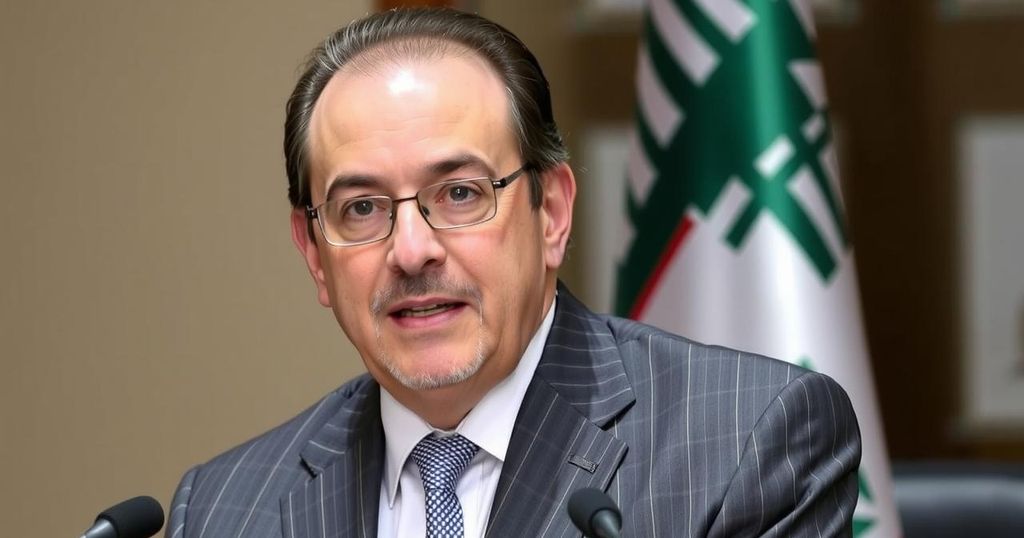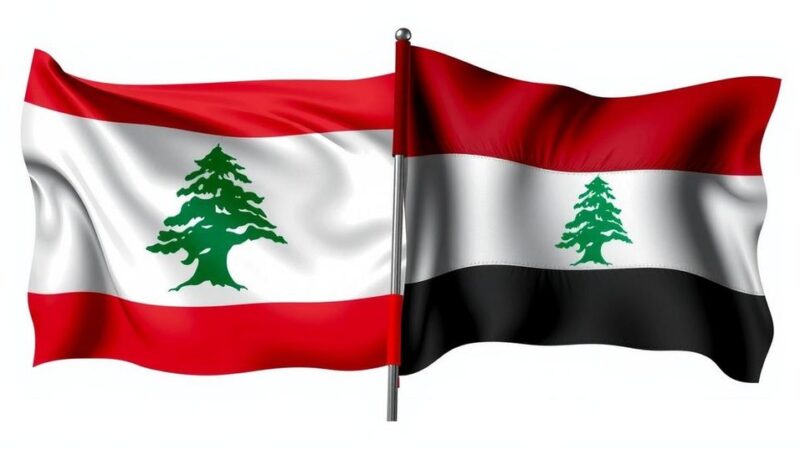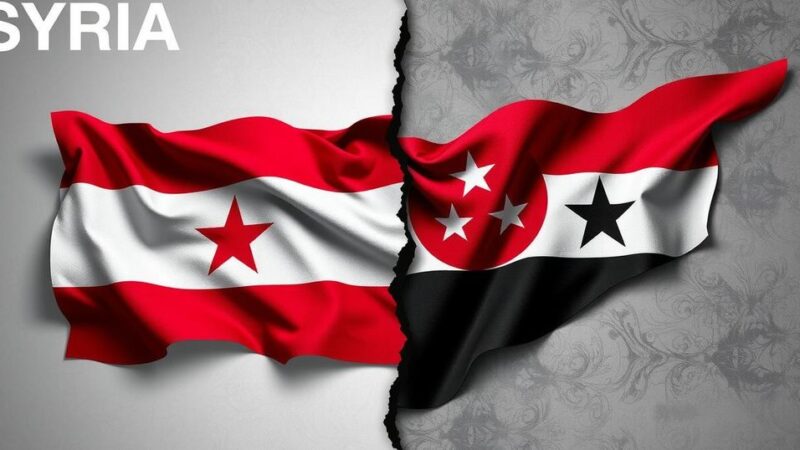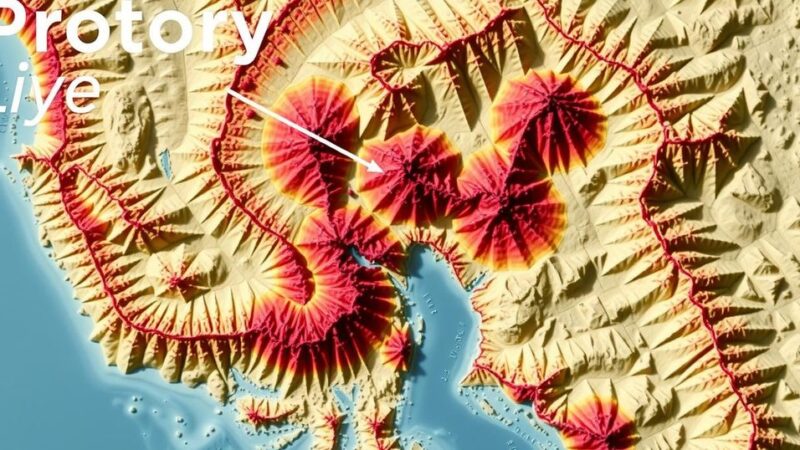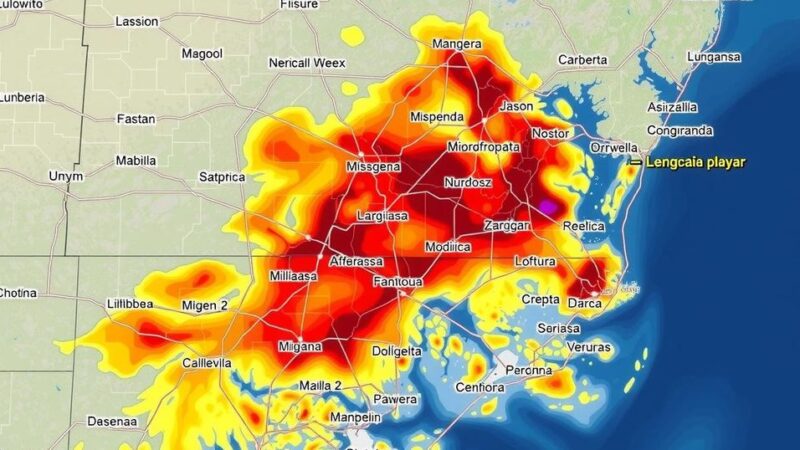Nawaf Salam, president of the International Court of Justice, has been appointed as Lebanon’s new Prime Minister by a parliamentary vote. The move challenges Hezbollah’s interests, as it sought to reinstate caretaker PM Najib Mikati. Salam, who comes from a notable political family and has a distinguished academic background, must now create a government to gain parliamentary support amid Lebanon’s ongoing political and economic crises.
Nawaf Salam has been appointed as Lebanon’s new Prime Minister, as confirmed by the parliamentary nominations that required a two-thirds majority of the 128 lawmakers. The 71-year-old judge, currently serving as the president of the International Court of Justice (ICJ) in The Hague, was selected during consultations led by the newly elected President Joseph Aoun. Caretaker Prime Minister Najib Mikati, who sought reappointment, garnered only nine votes. Salam’s returning to Lebanon is scheduled for Tuesday.
This appointment serves as a significant challenge to Hezbollah, which had aimed to reinstate Mikati but failed to propose an alternative candidate. The recent conflict with Israel has diminished the influence of the Iran-backed Shia militia, and senior Hezbollah lawmaker Mohammed Raad criticized opposing forces for pursuing fragmentation and exclusion. He expressed discontent over what he viewed as a betrayal after Hezbollah supported Aoun’s presidency.
Conversely, Salam has garnered support from Christian and Sunni political factions, with Gebran Bassil, leader of Lebanon’s dominant Maronite Christian bloc, referring to him as the “face of reform.” Sunni lawmaker Faisal Karami also endorsed Salam, motivated by calls for “change and renewal” and promises of international assistance for Lebanon.
Salam comes from a notable Sunni family in Beirut, with historical political connections; his uncle was instrumental in Lebanon’s independence and served multiple terms as prime minister. His extensive academic background includes doctorate degrees from prestigious institutions in political science and history, along with a Master of Law from Harvard Law School.
Before his ICJ presidency, he maintained a career as a lawyer, university lecturer, and Lebanon’s permanent representative to the United Nations from 2007 to 2017. Now that he is set to lead, Salam must form a cabinet that secures parliamentary confidence amid Lebanon’s pronounced political divisions.
President Aoun’s election, supported by various political entities including Hezbollah, marked a potential shift in Lebanon’s political landscape. Aoun emphasized the need to reinforce state sovereignty, particularly regarding arms control in light of Hezbollah’s military capabilities, which have historically surpassed those of the Lebanese army. Post-election, Aoun assured efforts towards essential political and economic reforms, vital for addressing Lebanon’s crisis-ridden backdrop, including an enduring economic downturn and the tragic 2020 Beirut port explosion.
The political landscape in Lebanon is significantly shaped by a sectarian power-sharing system that allocates key political positions according to religious affiliation. Following the election of President Joseph Aoun, the selection of a Prime Minister was crucial, as Lebanon navigates ongoing challenges including a debilitating economic crisis and various external pressures, notably from Hezbollah due to its military influence and recent conflicts with Israel. The appointment of Nawaf Salam as Prime Minister is indicative of broader political dynamics and the quest for reform in a fractured political environment.
In summary, Nawaf Salam’s appointment as Lebanon’s Prime Minister signifies a pivotal moment in the nation’s efforts towards political reform and stability. With strong backing from various political factions and pressing demands for change, Salam’s leadership will be crucial in addressing Lebanon’s numerous challenges, including economic recovery and political realignment amidst existing sectarian divides. His ability to form an effective cabinet will determine the success of this new chapter in Lebanese politics.
Original Source: www.bbc.com

